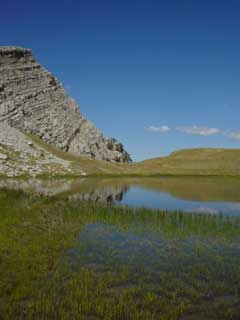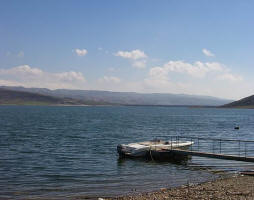 Value Ecosystems - Not Just Crops - When Managing Water Use, says UN Report
Value Ecosystems - Not Just Crops - When Managing Water Use, says UN Report
Recognising the valuable services provided by ecosystems such as wetlands and forests - and not only focusing on water productivity in agriculture - can improve livelihoods and help meet the rising demands on the world's water resources in a sustainable way, according to a new report from the United Nations Environment Programme (UNEP).
Increasing water productivity and efficiency is a key concern for policymakers in many parts of the world, especially as rising incomes and changing diets are set to increase the demand on water resources that are already under pressure.
The UNEP report, entitled Releasing the Pressure: Water Resource Efficiencies and Gains for Ecosystem Services, which was produced by researchers at the Stockholm Environment Institute (SEI), urges policymakers and resource managers to shift from the traditional focus on water productivity per unit of agricultural yield ("more per crop drop"), to a broader view of the concept, which would include ecosystems services.
Such an approach would take into account water regulation and purification, pollination, erosion control and other ecosystems services performed by wetlands and forests. These water-dependent services, and the communities that rely on them, can be adversely affected when water is siphoned off from rivers or streams, or drained from marshes, for agricultural use.
Balancing the goals of agricultural land (agro-ecosystems) with these kinds of ecosystem services - using some of the techniques outlined in the UNEP report - can serve to improve human well-being, increase crop yields in a sustainable way and support the transition to a low-carbon, resource-efficient and equitable Green Economy.
"Assessing water productivity narrowly ? for example, by simply looking at crop, fodder and forest produce - will continue to under-value the role of water for wider society and the economy," said UN Under-Secretary-General and UNEP Executive Director Achim Steiner.
"Recognising the wider benefits generated by water, for example nutrient flows, cooling, providing habitats, and other supporting and regulating ecosystem services, is the aim of our work. Water may soon be a critically restricted resource for a growing number of people. In just over three months, world governments will meet for the UN Conference on Sustainable Development (Rio+20). This report addresses an important issue for future sustainable development: how to enhance the productive and equitable use of water for multiple needs," added Mr Steiner.
| Contact information |
Bryan Coll, Newsdesk du PNUE (Nairobi) / Anna Löfdahl – SEI Press and Communications Advisor (Europe and Africa) / Marion Davis – SEI-U.S. Communications Manager (Etats-Unis et autres pays)
(email: unepnewsdesk@unep.org ; anna.lofdahl@sei-international.org ; marion.davis@sei-international.org) Phone: + 254 207623088 / +46 8674 7693 / +1 617-245-0895 |
|---|---|
| News type | Inbrief |
| File link |
http://www.unep.org/Documents.Multilingual/Default.asp?DocumentID=2676&ArticleID=9075&l=en&t=long |
| File link local |
|
| Source of information | cdurable.info |
| Subject(s) | AGRICULTURE , NATURAL MEDIUM , POLICY-WATER POLICY AND WATER MANAGEMENT |
| Relation | http://www.unep.org/Documents.Multilingual/Default.asp?DocumentID=2676&ArticleID=9075&l=en&t=long |
| Geographical coverage | n/a |
| News date | 19/03/2012 |
| Working language(s) | FRENCH |
 you are not logged in
you are not logged in





